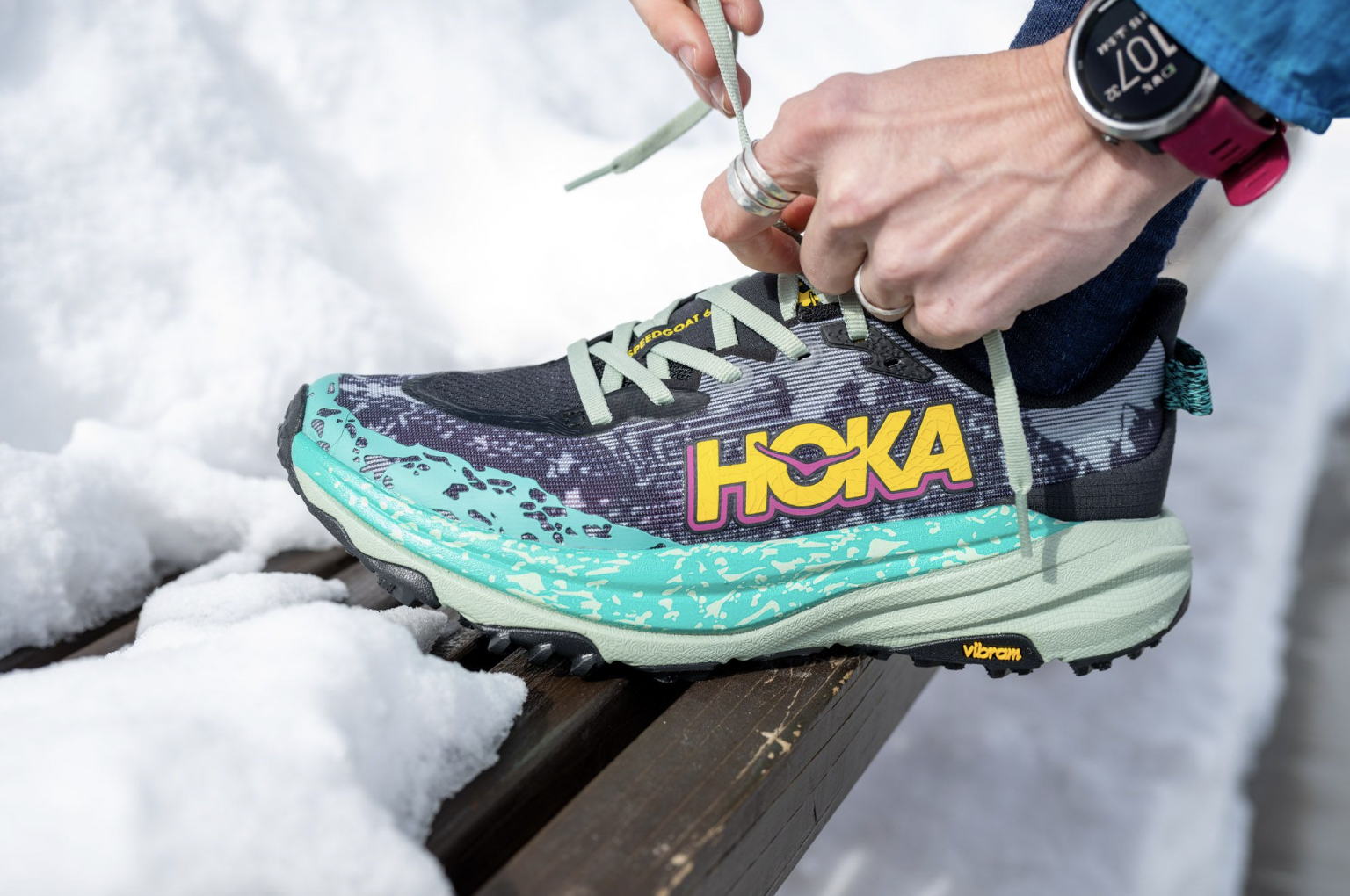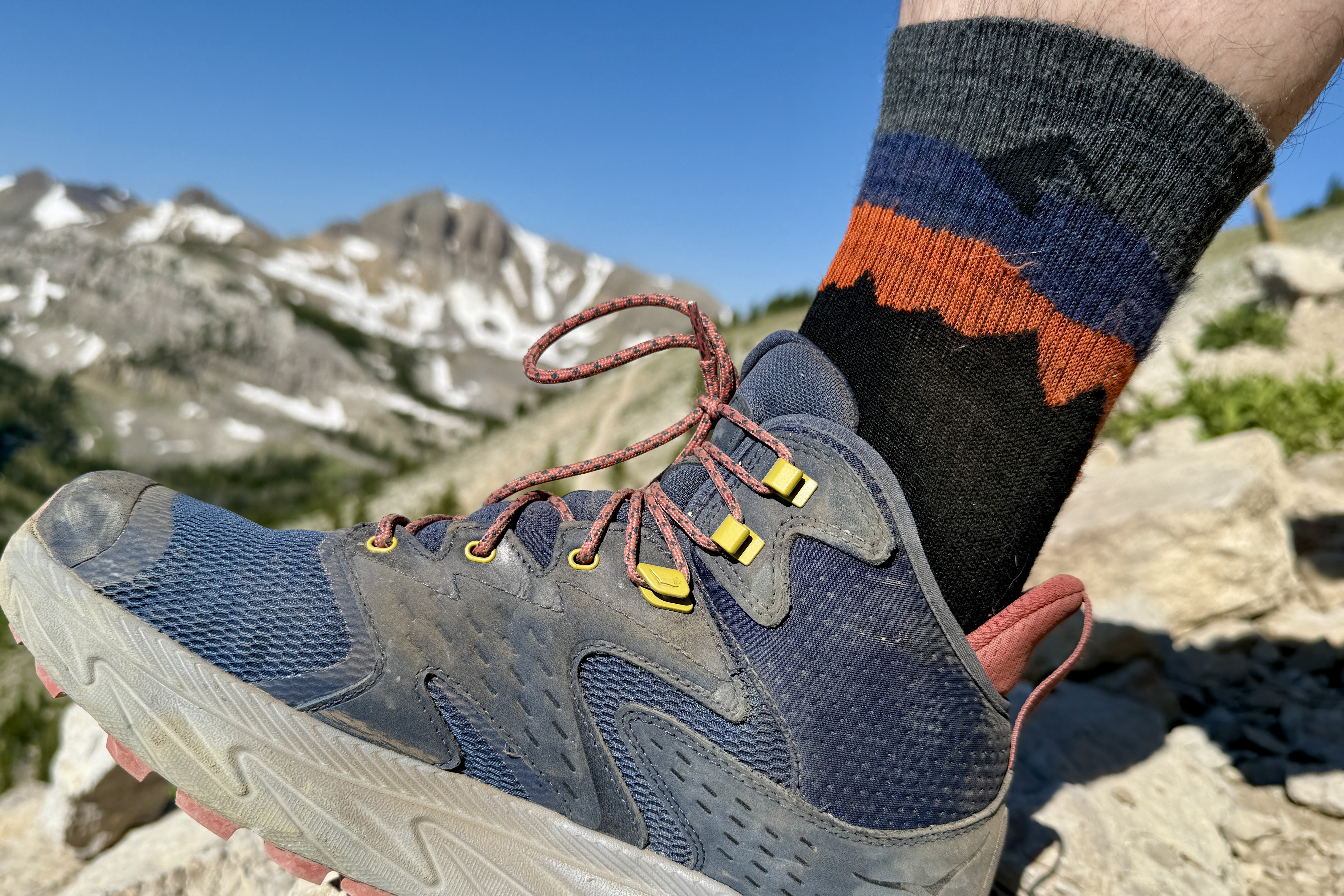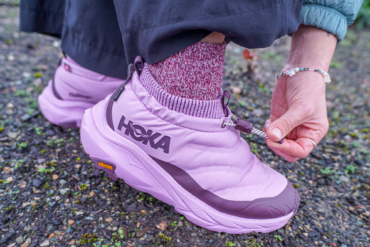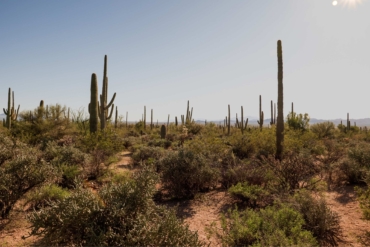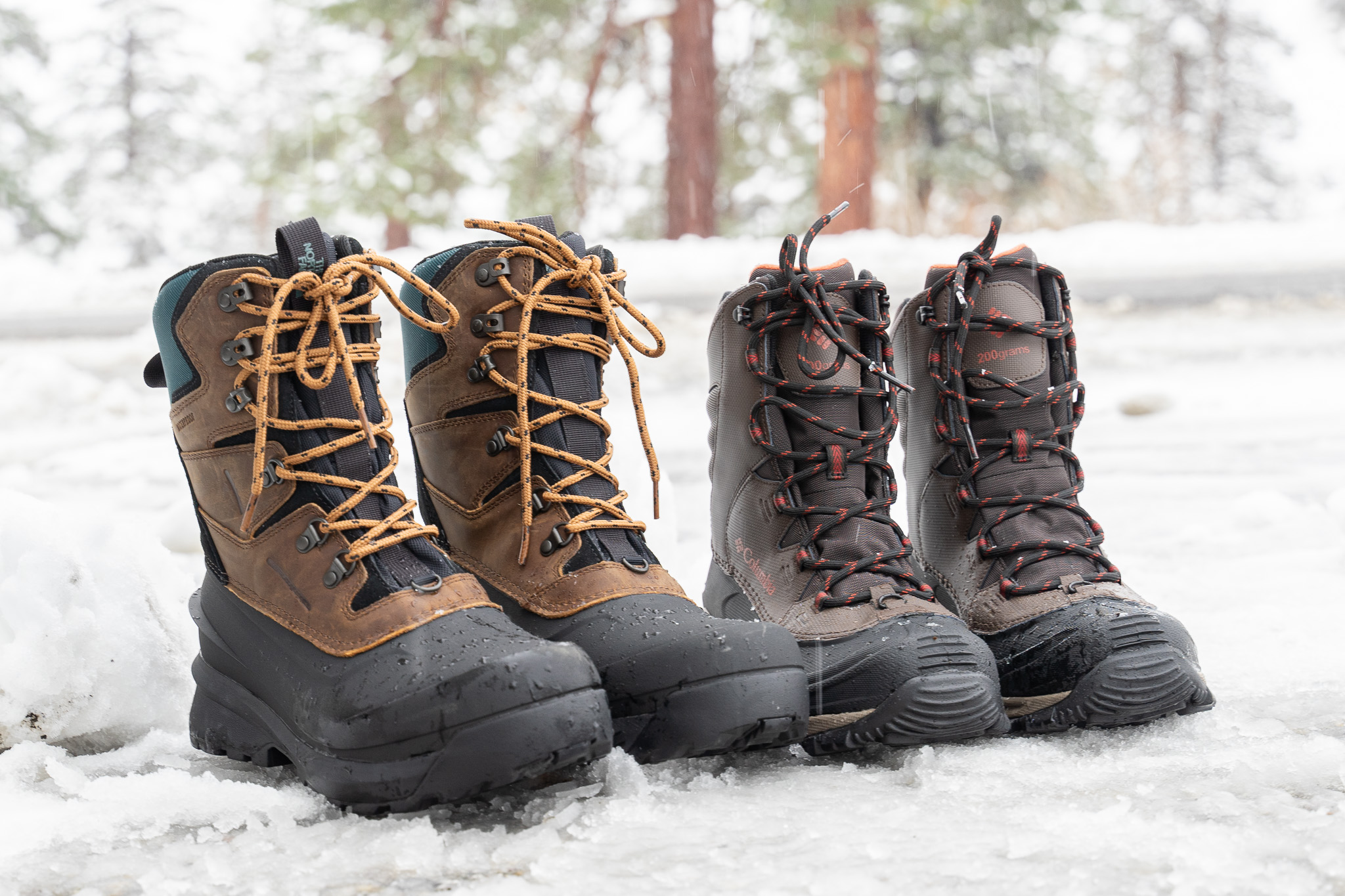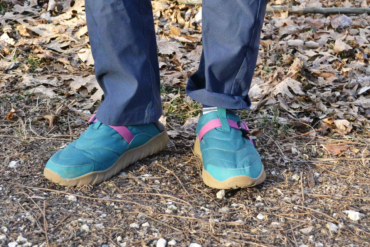Looking for durable, high-performing, and comfortable trail shoes? We tested three varieties of Danner 2650 hiking shoes in tough conditions for this review.
As a backpacking guide in Yosemite, I log a lot of heavy miles trudging across all sorts of conditions. The job demands a pair of shoes that provide all-day comfort while withstanding consistent beatings, gripping wet granite, and protecting my ankles beneath a 60-pound pack.
Danner’s 2650 line does it better than any other shoe I’ve found, and the new Mesh and Campo models now provide a style for every season.

The Ultimate Thru-Hiker: Trail 2650s
The original Trail 2650s were designed by thru-hikers looking for the perfect shoe to tackle — and literally named after — the 2,650 miles of the Pacific Crest Trail.
Weighing in at only 24 ounces per pair, the Trails quickly proved worthy of the task — probably due to their durable leather and textile uppers, breathable mesh liners, Vibram soles, and removable OrthoLite footbeds.
“Waterproof” isn’t a word I use frivolously with footwear, and the Trails don’t claim to be it. That said, they are as watertight as any nonwaterproof shoe I’ve ever tried.
The leather uppers keep water out, and I can walk through streams submerging to just below the ankle, without my socks getting wet. For Danner’s fully waterproof solution, try the GORE-TEX version of the Trail 2650 (the GTX).
The Trail’s tread is made of a tenacious rubber-ish material called “Vibram 460.” Its grip on wet, slick rock is exceptional. This is standard issue on all the 2650 models, and I can confidently cling to wet granite and mossy terrain in any of the shoes reviewed. This makes them fantastic approach shoes for climbing.

Inside, the Trails are a welcome reprieve from the stiffness of typical hiking boots. Designed with trail running in mind, for me their removable 8mm OrthoLite insoles provide a difficult-to-achieve balance of cushion and support.
Paired with an ultralight midsole, they hug my feet with a comfortable fit, so I don’t need a second pair of camp shoes to change into after hiking.
The one downside of the Trail 2650s is actually an upside in colder climates. Though they’re not billed as an insulated shoe, the leather and textile uppers trap heat to work great in snowy, rainy, or otherwise cold conditions.
To me, they’re a bit warm for summer, so when I heard that the new releases — the Campo and Mesh — are virtually the same shoe but engineered for warmer weather, I had to give them a try. Here’s what I’ve found after a summer of testing all three in Yosemite.
Check Men’s Price at REI Check Women’s Price at REI
A Warm-Weather Solution: Trail 2650 Campo
The most breathable and lightweight variation of the 2650s, the Campos are Danner’s hot-weather hiking solution. Named after Campo — a hellishly hot desert region at the south end of the PCT — Danner designed this shoe to let your foot breathe in dry, rocky desert terrain.
At just 22 ounces per pair, the Campo is light on the feet and is noticeably less bulky than both the Trail and Mesh. I use the Campo for summertime day hikes, trail running, and overnight trips with extra-high temps.
Like the Trails, the Campo’s upper is composed of abrasion-resistant leather. But it feels thinner and has generous drainage ports that release moisture and heat. Paired with a mesh toebox and inner liner, altogether the Campo feels breezy.

New Structural Features
Danner also upgraded the Campo with structural features that balance its flexibility with added support. The new, stiffer heel counter provides support without being fully rigid, mitigating the painful heel rub, a common gripe with heel counters.
The cup locks in the foot and lends support to the ankle without being overbearingly hard on the heel. Like the Trail and Mesh, an exposed shank underneath provides support and durability with little added weight.
Another divergence from the original Trail 2650 design comes with the Campo’s tongue, which is a stretchy, breathable material stitched directly to the sidewall for a sock-like fit. My favorite attribute of the Campo, this design makes them extremely comfortable and keeps the shoe snug on the foot.
With all the benefits of a thinner, more breathable shoe come some minor drawbacks in the form of diminished support and durability. For that reason, the Campo isn’t my first choice for backpacking, as I’d opt for a more structurally stout design. That said, they rock for trail runs.

Check Men’s Price at REI Check Women’s Price at REI
Unconditional Comfort: Trail 2650 Mesh
If the Trail is a cold-weather hiker and the Campo handles heat, the Trail 2650 Mesh is the all-arounder capable of performing across seasons. Engineered specifically to provide comfort in the wide range of climates encountered on the PCT, this is the 2650’s most dynamic form.
With thicker sidewalls than the Campo, the Mesh is more akin in feel to the original Trail. The major difference is that the Mesh’s uppers are made of (you guessed it) mesh, rather than leather. This exchange makes for a more breathable, flexible, warm-weather shoe than the Trail, and a more insulated option than the Campo.

The Mesh’s added breathability means my feet sweat less, and with the right pair of socks (I like Ridge Merinos), blisters are a nonissue. The mesh uppers and liners aren’t waterproof like those of the Trail 2650, but if you’re hiking in the heat, the breathability is a worthy exchange.
Though the Mesh is Danner’s heaviest 2650, weighing in 2 ounces more than the Trail, to me they feel more agile. And, they work in a range of conditions. If I had to pick one model of the 2650s, this would be it.
Check Men’s Price at REI Check Women’s Price at REI
2650 Conclusion: Durability and Takeaways
All three of the 2650 models pass my durability test, which is the ability or probability of holding up for an entire season. In other words, these shoes (all the Campo models) are pretty tough. I’d give them about a B+.

Still, the one negative I experienced in the Mesh is that a small piece of tread dis-adhered from the sole near the left arch after one month of hard use. Given Danner’s usual standard for durability, this may be an anomaly. But even so, Danner’s one-year warranty remedies that issue.
If you’re looking for a great hiking shoe, Danner’s 2650 models have proven great over a summer of serious use. Check out a pair and see how they fit. And if you like what you find, take ’em for a hike. I think you’ll enjoy them.

